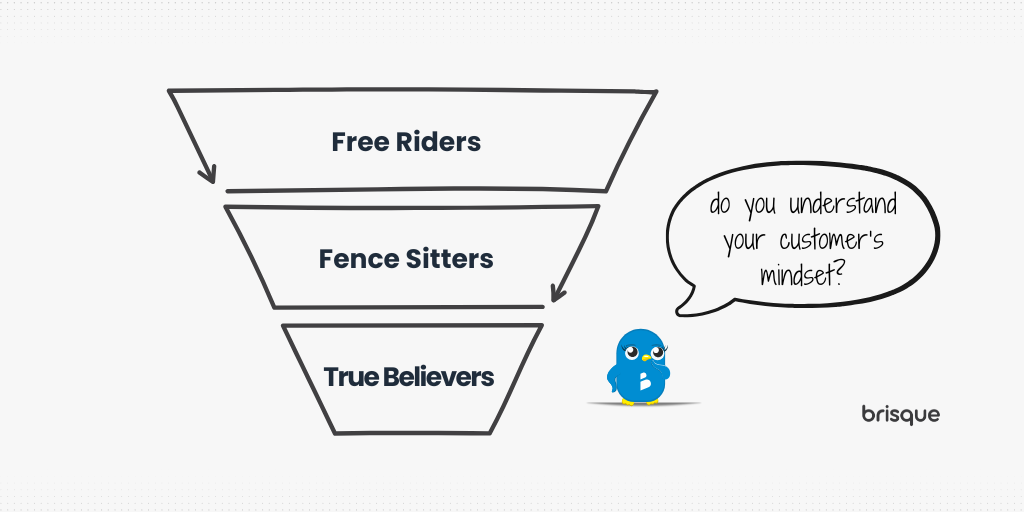The only guarantee with any plan is that it’s 100% inaccurate.
You’ll never know if you’ll truly meet your business sales goal. Or if your marketing campaign will perform the way you planned.
It’s not to say we shouldn’t plan. That’s what I do for a living. I help businesses plan because it’s harder to stay on track if you don’t plan.
The trick is to understand that your startup business plan is a roadmap, not an absolute.
So you must make room for discoveries and exciting pivots!
If you are a planner like me, you can probably keep planning till the cows come home and struggle to get to the execution part. It’s simply because every business plan looks flawed, as there’s always another way to execute the same thing.
How do you create a good balance between planning and execution?
Here’s an easy business planning reminder:
Plan so that you are sure of what you’d like to do but don’t plan so much that the planning becomes a bigger project on its own.
Startup business planning tips to help you balance execution and planning
1. Always know your goals
If you must execute something without a detailed plan, spend some time creating a list of goals or what you hope to achieve before doing it. Then, at the very least, you can come back and analyze your results.
2. Create an easy roadmap
If you don’t like planning, create an easy roadmap using these three questions:
- Who’s going to get this done?
- Why is this important?
- What will I do to get this done?
- When will I get this done?
3. Always make room for contingencies
Whenever you create a startup business plan, never plan without making room for contingencies. For instance, if you know you have 40 hours a week to work on something, plan as if you only have 30 or 25 to make room for when other things come up.
4. Reach for the skies but be realistic
Making sure your business plan for your startup is realistic can ensure that you follow through with your plan. It’s great to reach for the skies, but if you are consistently not reaching your goals, you might end up giving up altogether.
5. Set smaller goals and have stages
Always break up your big-picture dreams into smaller goals and smaller stages. For example, it might take a long time to get to your full vision if you are trying to build a complex product.
Instead of waiting to have everything before you launch your business, break your vision up into the following:
- What can I do right now with no help from anyone?
- Can it generate some cash to fund the next stage?
- What can I do with a bit of help with other resources that are affordable to me?
- Then break up your funding goals:
- What can I do if I had a quarter of the funding
- What can I do if I had half of the funding
- What can I do if I had all the budget, etc.?
6. Remember, business projections are not crystal balls
No matter how accurate our data is, business projections will always aim to predict what might happen in the future. They are not guaranteed.
7. Generate different scenarios for your sales plan
Set your sales goals by looking at the worst possible scenario. Then the best-case scenario. Let’s say you have two products with two different prices. A cheaper product and a premium product. You want to look at your sales projections for both products. However, if you must plan with just one product for your forecasts, you are better off assuming that most customers would buy the cheapest-priced product.
8. Don’t get caught up with the different goal-setting methods
When looking into goal-setting methods like OKRs, SMART, WOOP, and HARD, just pick your poison. The goal-setting method is not as crucial as using something you understand and can easily measure yourself.
Startup business plan execution tips to remember
1. Follow your plan
There’s no point in creating a business plan you don’t intend to follow.
2. Create a system for tracking your progress
Your project or task tracking system can be a project management software product or a simple Excel spreadsheet. Whatever works for you is fine. Don’t let the software get in the way of getting work done.
3. Who’s leading?
Know who’s in charge always. Every task should have a manager or team leader responsible for bringing a project to completion. If you are the lead, ensure that that’s clear.
4. Pay attention to discoveries
Look out for discoveries in your data that you might not have anticipated.
For example, you might have planned to run a sales promotion for one product, only to find that another product seems to be organically getting a lot of sales. Depending on the situation, it might make sense to switch over instead of sticking with your original plan.
5. Start tasks only if you have the resources to complete a task
Don’t start tasks knowing full well that you can’t finish them. Starting tasks you can’t complete is demoralizing. If there are projects that require more resources, table them and start them when you are prepared rather than starting and then stopping in the middle.
6. Deviate from your plan if needed but plan to come back
If you deviate from your original startup business plan to work on something else, leaving something uncompleted, always have a plan to return to it.
7. Don’t jump on every trend
Only jump on trends that make sense for your business or product. Of course, there will always be something trendy to try. But, if you are not careful, you might jump from one idea to the other, never quite rooting yourself in anything.
8. Don’t underestimate real-time feedback
On the ground, feedback is always essential. You’ll know how well your original ideas perform from how your intended audience responds to an initiative; however, if you are introducing something new, remember that it’s your job to make it catch on.
Contrary to popular belief, there are a lot of things that seem “viral” today but took time to catch on.
Remember, every new initiative must have a communication plan that looks something like this:
- Introduce the concept: talk about what it is, why anyone should care, and what it will do for them
- Educate: dive deeper into the idea or initiative. The education stage will most likely happen over several months
- Sustain: once you introduce the concept, you must sustain the communication around the idea. So if you use a term, use it at any chance. For instance, I use humanized marketing whenever possible because my business focuses on helping companies to be more relatable. And because I do so often, that’s the first thing most new customers mention
- Feedback: get feedback from the concept by encouraging participation or customer feedback.
To summarize
There’s a fine line between ensuring you are operating with a solid business plan for your startup and not stopping progress just to be perfect. When in doubt, just ask yourself if you know what you’d like to do for the next three months and if you have it documented for accountability.
Your documentation can be short such as a one-page plan, or can be longer to include a tactical plan. All that matters is that you document, follow through, and adjust along the way.
Because as we all know, no plan is perfect, no matter how detailed.
Other helpful reads:






